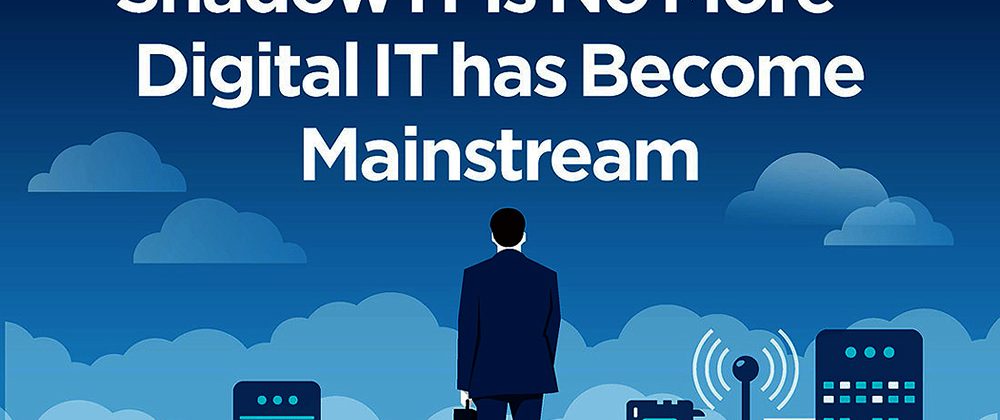VMware, a global leader in cloud infrastructure and business mobility, announced research findings that more than two thirds 68% of Middle East business leaders believe management of technology is shifting away from IT to other departments. This is as lines of business take charge of technology led innovation in EMEA organisations.
The research, among 1,200 IT decision makers and heads of lines of business in eight countries, finds that this decentralisation of IT is delivering real business benefits for Middle East businesses. The ability to launch new products and services to market with greater speed 66%, giving the business more freedom to drive innovation 69% and increasing responsiveness to market conditions 64%. There are also positives from a skills perspective, with the shift in technology ownership beyond IT to the broader business seen to increase employee satisfaction 72% and help attract better talent 72%.
This move, however, is not without its challenges. Leaders from across the business believe this is causing a duplication of spend on IT services 62%, a lack of clear ownership and responsibility for IT 47%, and the purchasing of unsecure solutions 52%.
Furthermore, this decentralisation movement is happening against the wishes of IT teams, the majority 76% of which want IT to become more centralised. In particular, IT leaders feel that core functions like network security and compliance 54%, storage 48% and private cloud-based services 24% should remain in their control.

“Middle East organisations are punching above the EMEA region’s average in decentralising IT, to deliver business benefits for customers and employees, bringing products to market faster, driving innovation, and increasing employee satisfaction,” says Deepak Narain, Regional Presales Manager, Middle East and North Africa for VMware.
“Middle East digital transformation is vital for enhancing the competitiveness of every Middle East organisation’s lines of business in the Internet of Things era and Digital Economy. However, deploying digital solutions alone is not enough. The Middle East C-suite needs to lead change management to bring together the IT team and lines of business to deliver digital success together.”
“It is transform or die for many businesses, with a tumultuous economic environment and radically evolved competitive landscape upturning the way they operate,” says Joe Baguley, Vice President and Chief Technology officer, EMEA, VMware.
“Managing this change is the great organisational challenge companies face. The rise of the cloud has democratised IT, with its ease of access and attractive costing models, so it is no surprise that lines of business have jumped on this opportunity. Too often, however, we are seeing this trend left unchecked and without adequate IT governance, meaning that organisations across EMEA are driving up costs, compromising security and muddying the waters as to who does what, as they look to evolve.”
The ownership for driving innovation within organisations is not disputed among business leaders. Two thirds 70% believe that IT should enable the lines of business to drive innovation, but must set the strategic direction and be accountable for security, highlighting the balance to be struck between the central IT function retaining control while also allowing innovation to foster in other, separate areas of the business.
“This is not shadow IT anymore, that is yesterday’s story – this is now Mainstream IT,” continues Baguley. “The decentralisation movement is happening, driven by the need for speed in the business world. we have never seen such a desire for new, immediately available applications, services and ways of working. By recognising these changes are happening, and adapting to them, IT can still be an integral part of leading this charge of change. The latest technology or application will only truly drive digital transformation when IT is able to cross any cloud, to be available at speed and with ease, within a secure environment.”
Decentralisation of IT is defined as when any employee within any business department of an organisation, other than the IT department, is making IT purchases or installing or maintaining software. It can also include employees using non-IT approved software, such as Dropbox, without the involvement of the centralised IT department.
Specialist market research agency Vanson Bourne researched 1,650 IT decision makers, 1,650 heads of line of business globally, in companies with 1,000+ employees in the UK, France, Germany, Italy, Netherlands, Sweden, Middle East, USA, Mexico, Brazil, China, Japan, India, Australia, South Korea, Singapore, Indonesia, Malaysia and Thailand, using a hybrid approach of telephone and online interviewing during September 2016.





